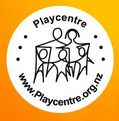The Ministry of Education (MOE) believes every child and young person can be educated and every student in New Zealand has the right to take part in education and to learn through the New Zealand Curriculum. Special Education is the providing of extra help, adapted programmes, learning environments, or specialised equipment or materials to support Special Needs children and young people with their learning.
Many children and young people have Special Education needs. These involve different categories of special needs, including learners with disabilities, learning difficulties, communication or behaviour difficulties, or sensory or physical impairments.
What are Special Educational needs?
Special Educational needs are defined as any need that cannot be met within a regular early childhood, school, home or family setting without extra support. It might be that a child has difficulty speaking, listening, seeing, hearing, a learning or communication delay, a social, emotional or behavioural difficulty or a combination of these and, due to this, they need extra support in a learning environment. On the other hand, a child who is gifted or talented is said to have Special Education needs and may similarly need extra support and extension in school.
There are differing degrees of Special Educational needs and different levels on which students may require Special Needs support.
How is support provided to Students with Special Needs?
Support given to students is varied and individually suited to each child and his or her needs. The Special Education Grant ( SEG ) provided to state schools by the MOE is used to implement Special Education programmes. There are a number of ways this may be used. It might be spent on professional development of staff members who are directly involved in the education of Special Needs students, to purchase new resources and materials for Special Needs students learning programmes, or to employ additional staff members.
Students with Moderate Educational needs may receive one or a combination of the following support measures:
- Resource Teachers: Learning and Behaviour (RTLB) – These teachers are specially trained to support and work within schools meeting the needs of students with moderate learning and/or behaviour difficulties.
- Resource Teachers: Literacy (RT: Lit) – Resource Teachers : Literacy, are specially trained teachers who support and work in schools, assisting staff to meet the needs of students with reading and writing difficulties. Although these teachers work primarily with Special Needs students within the school, this resource is not limited to Special Needs students. It is part of the National Literacy and Numeracy Strategy.
- Specialised Services – Occupational Therapy and/or Physiotherapy. Advisors on Deaf Children, Itinerant Teachers of the Deaf (AODC/ITOD) and Itinerant Resource Teachers of the Visually Impaired provide an itinerant service to students with moderate vision and hearing impairments. The Ministry contracts a range of service providers throughout New Zealand to provide Physiotherapy and Occupational Therapy for students with moderate physical disabilities who do not meet the ORRS criteria.
Students with High and Very High educational needs may receive one or a combination of the following support measures. (Only 3% of children are defined as having High Needs) –
- Ongoing and Reviewable Resourcing Schemes (ORRS) – This is funding for extra teaching, specialist programmes, therapy, consumables and education support. Students are verified for the ORRS by a Ministry-appointed panel as having Very High, High or combined moderate needs which are likely to be ongoing throughout their schooling years. If it’s unclear whether or not these needs will be ongoing for a child, their case will be reviewed at certain periods.
- Speech-Language Initiative – This is therapy usually provided at school for students with high communication needs and is available to students with communication difficulties who are not funded under the ORRS. Training courses are also run for teachers so they can identify communication difficulties and arrange programmes to meet student’s needs.
- Severe Behaviour Initiative – This initiative provides advice and specialist support for students with severe behaviour difficulties, their schools, families, the community and Government agencies. It is directed at students with the most severe and challenging behaviours.
Support for these students and their teachers, families and whänau is provided by the Behaviour Support Teams. There are a number of these teams around the country and team members include Education Psychologists, Special Education Advisors and teachers with significant experience in working with students with behaviour difficulties.
The second part of this initiative are the Centres for Extra Support. These centres offer short term support for those students whose behaviour makes it difficult for them to be managed within their local school. Centres for Extra Support operate differently from region to region.
High Health Needs – special education support. There are two parts to this initiative:
1. Regional Hospital Health Schools –
These schools have been set up to cater for students with High Health needs in the Auckland, Wellington and Christchurch regions.
In order to fit the criteria for using this service a student must have –
a. been absent from school for 10 consecutive days due to high health needs
b. and/or six or more admissions to hospital in one year
c. and/or a total of 40 school days absence because of high health needs.
2. School High Health Needs Fund (SHHNF) –
This fund provides resourcing for Teacher Aide care and supervision for students with High Health needs so they can attend school safely.
(Information about each of these initiatives is available from your school and Ministry of Education.)
Other support available may include:
- Speech-Language therapists (SLT’s) who provide assistance to students with high speech and language needs. They are able to assist families and teachers and provide programmes to meet students’ needs.
- Occupational Therapists (OT’s) and Physiotherapists who provide assistance to students with physical impairments. They also provide advice to teachers and families and assess access and possible moderations to environments for students who have access issues.
- Psychologists who work with those who need assistance to learn, and with behaviour, social and emotional development. They provide appropriate psychological and educational assessments and interventions.
- Special Education Advisors who work with children with behavioural and learning needs. These advisors also work with teachers to help adapt their programmes.
- Advisors on deaf children who work with children who are deaf or have hearing impairments (Advisors on deaf children).
- Teacher aides who provide support under the direction of classroom teacher.
And
- Transport assistance – a subsidy or allowance for taxi or bus for travel between home and school.
- Property modifications – Work such as alterations or additions to school property to enable children and young people with Special Education needs to enter and carry out regular activities within state schools.
- Assistive equipment – a wide range of tools for students to assist them with their learning.
For more information, visit the following link to find your nearest Ministry of Education office, your nearest Special Education District Office or phone the Special Education Information Line 0800 622 222





